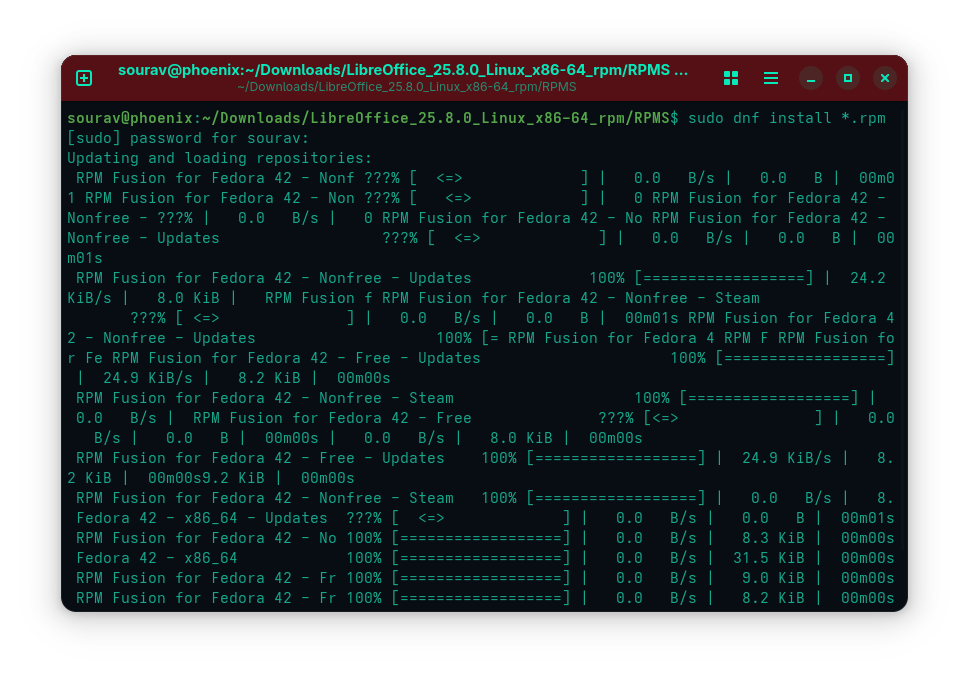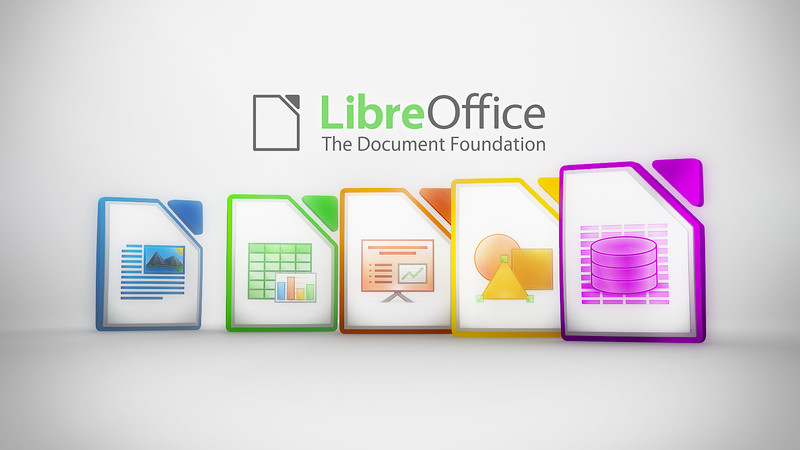
LibreOffice continues to be a top choice in the open source office suite space with its regular feature updates, an active community, and its commitment to not selling the data of its users.
While a recent extension launch brings AI features to LibreOffice, the developers clearly state that they have "no plans to put AI into LibreOffice".
In this article, we will be taking a look at what new changes the LibreOffice 25.8 release brings to the table.
🆕 LibreOffice 25.8: What's New?
We kick things off with the performance upgrades, where Writer and Calc now open files up to 30% faster. This was assessed by the LibreOffice team in the various benchmark tests they ran. Memory management has also been optimized, ensuring smoother performance on virtual desktops and thin clients.
Next, LibreOffice has made significant gains in handling Microsoft Office files with this release. DOCX, XLSX, and PPTX documents are now processed with greater accuracy, reducing formatting issues and making cross-platform work more reliable.
Improvements include a complete overhaul of word hyphenation and spacing, better font management in Impress, and a range of new functions in Calc.
Then there's the updated Welcome/What’s New dialog, which makes it easier for users to get started with LibreOffice. New and returning users alike can now quickly access the user interface picker and appearance settings, allowing them to change the look and feel of the office suite to their liking.
🛠️ Other Changes and Improvements
Here’s the rest of the changes that are part of this release:
- PDF 2.0 is now supported with this release.
- In Draw, boundaries are now shown for page margins.
- The spellchecker is now better in multi-language spreadsheets.
- Enhanced support for screen readers and improved keyboard navigation.
You can go through the release notes to learn more about this LibreOffice release.
⚙️ How to Install/Upgrade?
You can source LibreOffice 25.8 from the official website, where there are packages for Linux, Windows, and macOS.
There's also a Flathub listing for Linux users.
For existing users, LibreOffice is preinstalled on most major Linux distributions; you can just wait for your distro to provide the upgrade from its repository, the official LibreOffice PPA, or Flathub.
However, if you can't wait, then uninstall your existing LibreOffice installation and download the tar package (DEB or RPM) from the official website linked above, then extract the package to a directory.
Now, head into the folder named "DEBS" or "RPMS" depending on the tar you downloaded, and use the right-click menu in your file manager to open it in the terminal.

Then, type in one of the following commands according to the package you downloaded to install (for Fedora or Debian-based distros):
sudo dnf install *.rpmsudo dpkg -i *.debIf everything goes well, you will have the latest LibreOffice release installed on your system.
Suggested Read 📖

- Even the biggest players in the Linux world don't care about desktop Linux users. We do.
- We don't put informational content behind paywall. Your support keeps it open for everyone. Think of it like 'pay it forward'.
- Don't like ads? With the Plus membership, you get an ad-free reading experience.
- When millions of AI-generated content is being published daily, you read and learn from real human Linux users.
- It costs just $2 a month, less than the cost of your favorite burger.
Become a Plus Member today and join over 300 people in supporting our work.











